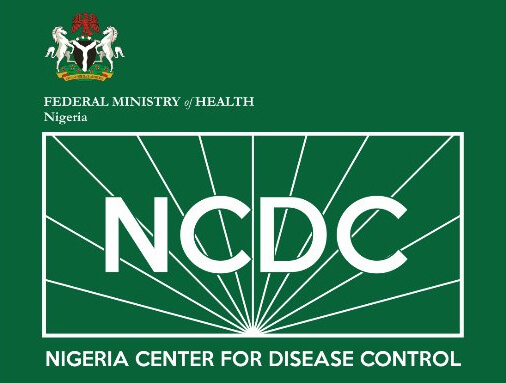Nigeria Strengthens Preparedness Amid Global Concerns Over Human Metapneumovirus
By Edward Samuel, Abuja
In response to heightened global concerns about Human Metapneumovirus (HMPV), the Nigeria Centre for Disease Control and Prevention (NCDC) has issued a public health advisory to strengthen awareness, preparedness, and preventive measures.
READ ALSO:NCDC Activates Emergency Operations Centre for Lassa fever
Reports of increased HMPV activity in China, the United Kingdom, and other countries have raised international vigilance, prompting the NCDC to act decisively.
HMPV is a respiratory virus that causes illnesses ranging from mild cold-like symptoms to severe respiratory infections. It is particularly dangerous for young children, older adults, and individuals with weakened immune systems.
The virus spreads through respiratory droplets, close contact, and contaminated surfaces, with overcrowding and poor ventilation further increasing transmission risks.
While Nigeria has not recorded any unusual rise in respiratory infections linked to HMPV, the NCDC emphasized the need for vigilance. The agency’s National Influenza Sentinel Surveillance (NISS) system, which monitors influenza-like illnesses (ILI) and severe acute respiratory infections (SARI) across the six geopolitical zones, continues to provide real-time data to detect any anomalies.
Recent reports from the United Kingdom and other parts of Europe indicate significant increases in HMPV-related hospitalizations, particularly among children under five and older adults in care homes. However, the NCDC clarified that rumors of the World Health Organization (WHO) declaring HMPV a Public Health Emergency of International Concern (PHEIC) are false and should be disregarded.
The NCDC has classified the risk of HMPV in Nigeria as moderate following a dynamic risk assessment conducted in collaboration with WHO, the U.S. Centers for Disease Control and Prevention (USCDC), and the UK Health Security Agency (UKHSA). “This assessment guides the agency’s preparedness efforts and response strategies”.
As part of its proactive measures, the NCDC has expanded surveillance capabilities. Testing for HMPV will now be incorporated into the existing NISS framework, which already tests for COVID-19. Laboratories in states with international airports are being equipped to conduct HMPV testing to enhance diagnostic capacity nationwide.
To address the potential risk of HMPV transmission through international travel, the NCDC said it’s implementing stringent protocols at points of entry (PoEs). These include readiness assessments, deployment of infection prevention and control (IPC) materials, and the preparation of quarantine facilities. An Entry Implementation Protocol on HMPV has also been developed and will be distributed to all international PoEs.
Healthcare facilities across the country have been directed to adopt enhanced infection prevention and control practices, including proper hand hygiene, respiratory etiquette, and environmental cleaning. Hospitals are also required to establish isolation rooms for the quick management of suspected cases.
To further bolster preparedness, the NCDC is collaborating with state governments to train healthcare workers on HMPV case management. This includes ensuring supportive care and maintaining a high index of suspicion for respiratory illnesses. State treatment and isolation centers are being activated to manage any potential cases effectively.
The NCDC has also stockpiled essential medical supplies, including personal protective equipment (PPE), laboratory reagents, and IPC materials, for rapid deployment if necessary. These resources are critical to ensuring a swift and effective response to any potential outbreak.
Public engagement remains a key pillar of the NCDC’s strategy. The agency is working closely with health educators, risk communication teams, and the media to raise awareness, dispel misinformation, and encourage adherence to preventive measures. Accurate and timely information is being disseminated through multiple channels to ensure nationwide reach.
In its advisory, the NCDC urged Nigerians to practice good hygiene, including frequent hand washing with soap and water, proper respiratory etiquette, and the disinfection of commonly touched surfaces. Vulnerable groups, such as children and older adults, are advised to avoid crowded places and seek prompt medical attention if symptoms arise.
HMPV symptoms include cough, fever, nasal congestion, and shortness of breath. In severe cases, particularly among high-risk populations, complications such as bronchitis or pneumonia may occur. While there is no specific antiviral treatment or vaccine for HMPV, supportive care remains effective for recovery.
The Director General of the NCDC, Dr. Jide Idris reiterated the agency’s commitment to safeguarding public health through proactive measures.
“We are monitoring global developments closely and strengthening our response capacity to ensure that Nigeria is well-prepared”. He stated.
The NCDC encouraged the public to rely on verified information from its platforms and to contact the agency’s toll-free line, 6232, for emergencies or inquiries.
“By adhering to preventive measures and staying informed, Nigerians can collectively contribute to protecting their communities from respiratory infections like HMPV”. He added.


Comments are closed.